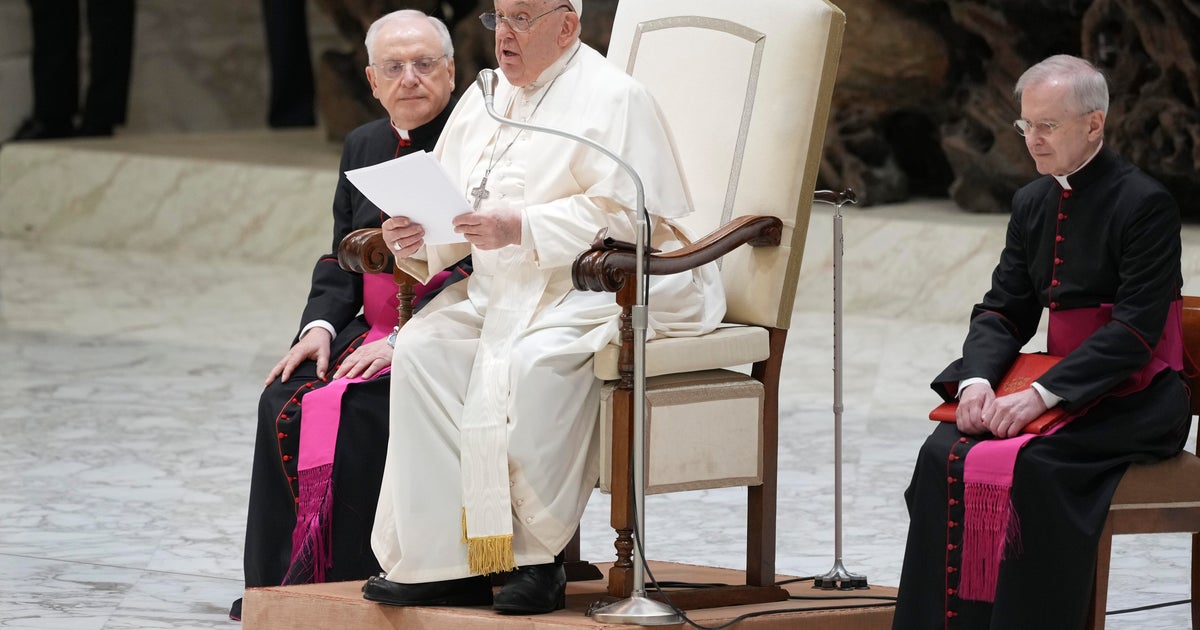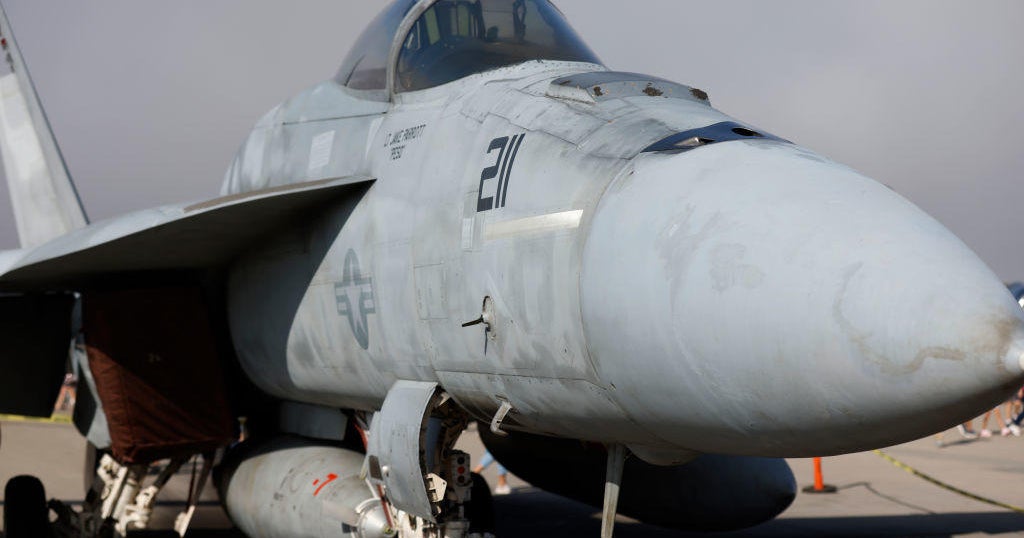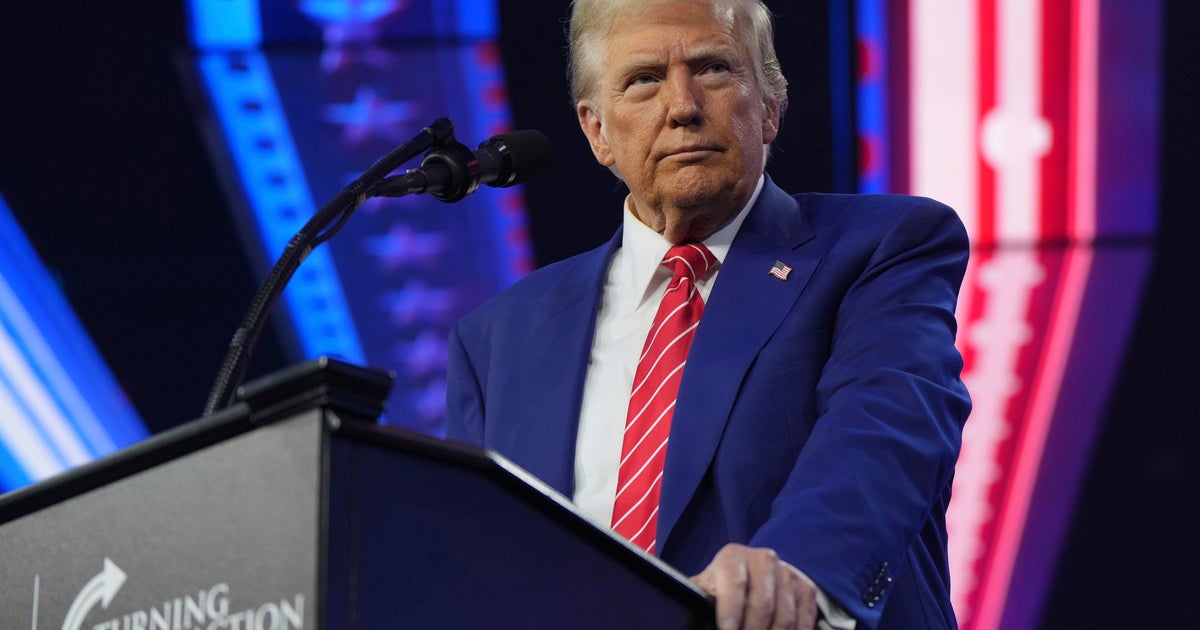Pope Francis warns "future of humanity" at risk over North Korea crisis
ABOARD THE PAPAL PLANE -- Pope Francis is warning that "a good part of humanity" will be destroyed if tensions with North Korea escalate, and he is calling for diplomacy and a revived United Nations to take the lead in negotiating a resolution.
Francis was asked as he traveled back to Rome from Egypt on Saturday about North Korean ballistic missile tests and U.S. warnings of "catastrophic" consequences if the world fails to stop them. He was asked specifically what he would tell U.S. President Trump, who has sent a U.S. aircraft carrier group to conduct drills near the Korean peninsula, and other leaders to try to diffuse the tensions.
Trump warns of conflict with North Korea as Tillerson pushes diplomacy at U.N.
Pope Francis urges Egypt imams to teach and preach tolerance, peace
Francis says he would urge them to use diplomacy and negotiation "because it's the future of humanity."
"Today, a wider war will destroy not a small part of humanity, but a good part of humanity and culture. Everything. Everything, no? It would be terrible. I don't think humanity today could bear it," he told reporters.
His comments came at a moment of particularly high tension: Hours earlier, a North Korean mid-range ballistic missile apparently failed, the third flop in a month.
On Friday, the U.N. Security Council held a ministerial meeting on Pyongyang's escalating weapons program. North Korean officials boycotted the meeting, which was chaired by U.S. Secretary of State Rex Tillerson.
North Korean ballistic missile tests are banned by the U.N. because they're seen as part of the North's push for a nuclear-tipped missile that can hit the U.S. mainland.
Francis said the U.N. should regain its leadership in conflict resolution, saying it had been "watered down" over time.
Mr. Trump has sent a nuclear-powered submarine and the USS Carl Vinson aircraft supercarrier to Korean waters, and North Korea this week conducted large-scale, live-fire exercises on its eastern coast. The U.S. and South Korea also started installing a missile defense system that is supposed to be partially operational within days, and their navies began joint military drills on Saturday.
Tensions with the North presumably would be on the agenda of a meeting between Mr. Trump and Francis.
On the trip to Egypt, Francis emphasized interfaith dialogue, brotherhood and called for an end to religious violence, CBS News' Seth Doane reports. On Friday, he embraced the grand imam of Al Azhar mosque, considered an important center of Islamic learning center.
The White House has said it would reach out to the Vatican to arrange an audience when Mr. Trump travels to Sicily at the end of May for a G7 summit.
Francis said no official request for a meeting with Mr. Trump had been received "but I welcome every head of state who requests an audience."
Francis recalled he has frequently lamented the "world war in pieces" that is raging in countries around the world. Now, he says, those pieces are getting bigger and more concentrated.
"This thing about North Korea missiles, it has been a long time that they've been doing this. Now it seems it has gotten too hot," he told reporters on the papal plane. "I always call for problems to be resolved via the diplomatic path, via negotiations."
Francis also on Saturday repeated his claim that some migrant holding centers in Europe amount to "concentration camps," even after Jewish groups urged him to stop using the loaded term.
A German reporter asked Francis if he had made a linguistic slip when he first made the remarks last week, adding that they had been met with shock in Germany. Speaking en route home from Egypt, Francis appeared to not appreciate the controversy, saying that there are some refugee holding centers where migrants are penned in and prevented from leaving.
He said: "There are refugee camps that are true concentration camps."
The American Jewish Committee sharply criticized the remarks and urged Francis to use a different choice of words.
In a statement last week, AJC said that while the conditions in some migrant centers might be difficult "The Nazis and their allies erected and used concentration camps for slave labor and the extermination of millions of people during World War II. There is no comparison to the magnitude of that tragedy."



